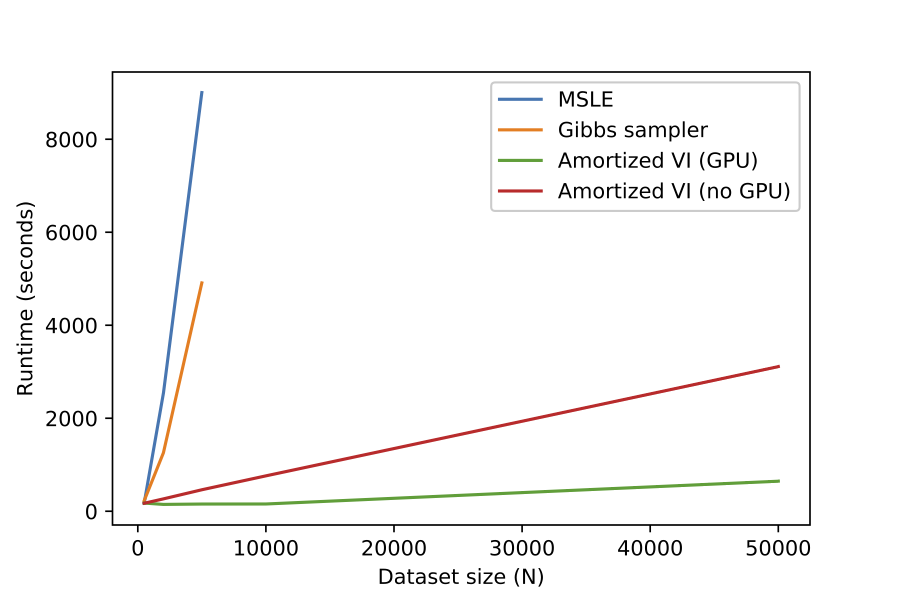PyDCML is a Python library for fast implementation and scalable inference of Bayesian Discrete Choice Models that makes it easy to leverage flexible state-of-the-art modelling techniques from Machine Learning, while remaining interpretable and preserving the links with economic theories established by Daniel McFadden [Ref1].
PyDCML uses PyTorch on the backend in order to enable stochastic backpropagation, automatic differentiation and GPU-accelerated computation. In doing so, PyDCML aims at enabling flexible and expressive Choice Modeling, unifying the best of modern Machine Learning and Bayesian modeling with Discrete Choice Theory.
PyDCML provides a simple formula interface that allows users to define observed and latent variables (parameters), and use them to easily specify utility functions:
V1 = BETA_COST*ALT1_COST + BETA_DUR*ALT1_DURATION + ...Read the Documentation for additonal details, demos, model extensions, etc.
Besides core implementations of Multinomial Logit (MNL) and Mixed Logit (MXL) models, PyDCML currently provides implementations of:
- Mixed Logit models with neural networks in the utilities (originally proposed in [Ref2] for MNL models)
- Mixed Logit models with Automatic Relevance Determination (originally proposed in [Ref3] for MNL models)
- Mixed Logit models with ordered responses
All these model extensions leverage PyDCML's flexibility and modular design. See How PyDCML works for a detailed explanation of how PyDCML is implemented, and check out Extending PyDCML for a tutorial on how to extend and implement new models in PyDCML.
Inference of Discrete Choice Models in PyDCML is done using Stochastic Variational Inference (SVI). Thanks to the efficient PyTorch implementation that can leverage modern GPUs with Cuda support, PyDCML is able to scale inference to large datasets. Additionally, PyDCML can make use of Neural Networks to amortize the cost of Variational Inference (Amortized VI), as proposed in [Ref4], thereby achieving computational speedups of orders of magnitude when compared with traditional estimation methods for Mixed Logit Models.
Scalability of Amortized VI for Mixed Logit Models when compared with traditional estimation methods such as Maximum Simulated Likelihood Estimation (MSLE) and Gibbs sampling. See Demosdemos.
- Ref1
McFadden, D. Conditional logit analysis of qualitative choice behavior, 1973.
- Ref2
Sifringer, B., Lurkin, V. and Alahi, A. Enhancing discrete choice models with representation learning. Transportation Research Part B: Methodological, 2020.
- Ref3
Rodrigues, F., Ortelli, N., Bierlaire, M. and Pereira, F.C. Bayesian automatic relevance determination for utility function specification in discrete choice models. IEEE Transactions on Intelligent Transportation Systems, 2020.
- Ref4
Rodrigues, F. Scaling Bayesian inference of mixed multinomial logit models to large datasets. In Transportation Research Part B: Methodological, 2022.
